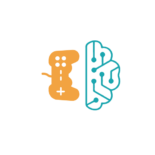
In today’s fast-paced world, technological advancements have transformed how we communicate, work, and conduct business. The influence of tech on communication is profound, with innovations like artificial intelligence (AI) revolutionizing our interactions. AI is no longer a futuristic concept; it’s a present reality, unlocking unprecedented success in business and technology. Among these advancements, Generative Pre-trained Transformers (GPTs) stand out, offering personalized AI solutions tailored to individual needs. This article delves into the realm of Custom GPTs, exploring their significance, applications, and how they can be harnessed to create personalized AI solutions.
Understanding Custom GPTs
Custom GPTs are AI models that have been adjusted to meet particular needs, increasing their effectiveness and applicability across a range of fields. Unlike generic GPTs, which are trained on broad datasets, custom GPTs undergo additional training on domain-specific data, making them more adept at understanding and responding to particular contexts. This customization process allows businesses and individuals to develop AI solutions that are precisely aligned with their unique needs, leading to more accurate and contextually appropriate outputs.
The Rise of Personalized AI Solutions
The demand for personalized AI solutions has surged as businesses strive to deliver more tailored experiences to their customers. From chatbots that provide customer support to AI-driven content creation tools, personalized AI is becoming an integral part of various industries. Custom GPTs play a crucial role in this evolution, enabling the development of AI applications that understand and adapt to individual preferences and requirements. By leveraging the power of custom GPTs, businesses can enhance customer satisfaction, streamline operations, and gain a competitive edge in the market.
Applications of Custom GPTs
Custom GPTs find applications across diverse sectors, proving their versatility and effectiveness. In the healthcare industry, they can assist in diagnosing diseases, offering personalized treatment recommendations, and providing patient support. In the financial sector, custom GPTs can analyze market trends, predict stock movements, and offer personalized investment advice.

Educational platforms use custom GPTs to create personalized learning experiences, tailoring content to the needs of individual students. These examples illustrate the transformative potential of custom GPTs in various domains, showcasing their ability to drive innovation and efficiency.
How to Create the Perfect Custom GPTs
Creating custom GPTs involves a systematic approach that ensures the AI model is finely tuned to meet specific needs. The process typically begins with defining the objectives and identifying the specific requirements of the application. This is an important step because it lays the groundwork for the process of customization. Once the objectives are clear, the next step involves gathering and preparing the domain-specific data that will be used to train the model. The quality and relevance of the data significantly impact the performance of the custom GPT, making this step essential.
Following the preparation of the data, the real training process starts. In this stage, the domain-specific data is used to refine the generic GPT model. This process involves adjusting the model’s parameters to improve its accuracy and relevance in the given context. The final step is to evaluate the performance of the custom GPT and make any necessary adjustments. This iterative process ensures that the AI model is continuously optimized, delivering the best possible results.
The Impact of Custom GPTs on Businesses
The implementation of custom GPTs can have a profound impact on businesses, driving efficiency, enhancing customer experiences, and fostering innovation. By leveraging custom GPTs, businesses can automate routine tasks, allowing employees to focus on more strategic initiatives. This automation leads to increased productivity and cost savings, making custom GPTs a valuable asset for businesses of all sizes.
Moreover, custom GPTs can enhance customer interactions by providing personalized and contextually relevant responses. In customer service, for instance, AI-powered chatbots can resolve queries more effectively, leading to higher customer satisfaction. In marketing, custom GPTs can analyze consumer behavior and preferences, enabling businesses to create targeted campaigns that resonate with their audience. These applications highlight the transformative potential of custom GPTs in enhancing business operations and customer experiences.
Ethical Considerations in Using Custom GPTs
While custom GPTs offer numerous benefits, it is essential to consider the ethical implications of their use. Ensuring data privacy and security is paramount, as custom GPTs rely on vast amounts of data to function effectively. Businesses must implement robust data protection measures to safeguard sensitive information and comply with relevant regulations. Additionally, it is crucial to address potential biases in AI models.

Custom GPTs should be trained on diverse and representative datasets to minimize bias and ensure fairness in their outputs. By prioritizing ethical considerations, businesses can harness the power of custom GPTs responsibly and sustainably.
Future Prospects of Custom GPTs
With continual advancements in AI technology opening the door to even more complex and customized solutions, the future of custom GPTs appears bright. As AI models become more advanced, the potential applications of custom GPTs will expand, driving further innovation across various industries. The integration of custom GPTs with other emerging technologies, such as the Internet of Things (IoT) and blockchain, will open up new possibilities, enabling the creation of more comprehensive and interconnected AI solutions. These developments underscore the importance of staying abreast of technological trends and continually exploring new ways to leverage custom GPTs for maximum benefit.
Conclusion
In conclusion, custom GPTs represent a significant leap forward in the realm of personalized AI solutions. By tailoring AI models to specific needs, businesses can unlock new levels of efficiency, innovation, and customer satisfaction. The best custom GPTs are those that are meticulously crafted through a systematic process, ensuring their relevance and accuracy in various applications. As we look to the future, the potential of custom GPTs to drive transformative change across industries is immense, highlighting the importance of embracing this technology and exploring its myriad possibilities.
